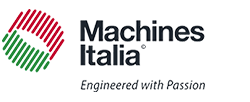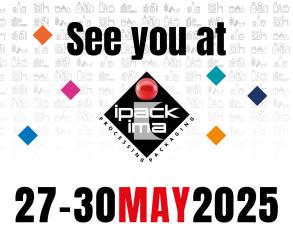After delivering the first post-industrial plastic film deinking plant to Coveris-ReCover (Lincolnshire, UK) in 2023, SOREMA has recently upgraded it with a series of innovations to maximize the quantity and quality of the line's output.
The international market had long required a solution for recycling increasingly significant portions of film used in consumer packaging, a sector where the challenge is represented by the printed part. More than ten years ago, SOREMA started a series of industrial tests in order to understand the ink removal mechanism and to design machines for this technology. In Sortology, SOREMA has found the ideal partner to complete the process with chemical detergents, by developing a system that washes and de-inking the printed films, allowing a high percentage of reuse in the original packaging.
The technology is already used for PP and PE films.
The deinking system has two main components: the batch reactor, in which deinking takes place, and the water filtration system, which is necessary to minimize water and chemical consumption. The ink industry has thousands of different formulations, pigments, primers and substrates. Consequently, the batch reactor is by far the best solution, as it allows perfect control of time, friction and chemical concentration.
In order to support new projects, SOREMA has installed a 1:1 scale deinking line in its laboratory to validate tests and is developing solutions for post-consumer films and highly contaminated packaging from the food industry. Indeed, another challenge is the combination of the deinking process with SOREMA's patent-pending delamination technology.
The deinking solution removes ink from heavily printed LDPE films, allowing them to be reprocessed as high-quality recycled raw material for Coveris' high-performance film extrusion and packaging for leading food brands. Coveris - with a wide range of customized printing solutions requiring flexibility and support from suppliers - has chosen SOREMA and Sortology as high-level partners: this allows it to use high percentages of recycled material in the original packaging to meet the recycling targets of both Coveris itself and its customers.
More specifically, the SOREMA plant has a production capacity of up to 1,000 kg per hour for films and up to 1,500 kg per hour for rigid packaging. Thanks to the combination of the line's flexibility and Sortology's support, it is possible to customize the chemicals to minimize process costs. Ongoing collaboration with SOREMA and Sortology, together with a proactive approach to design for recycling, has led to a 30-50% reduction in consumption.
www.previero.it

























